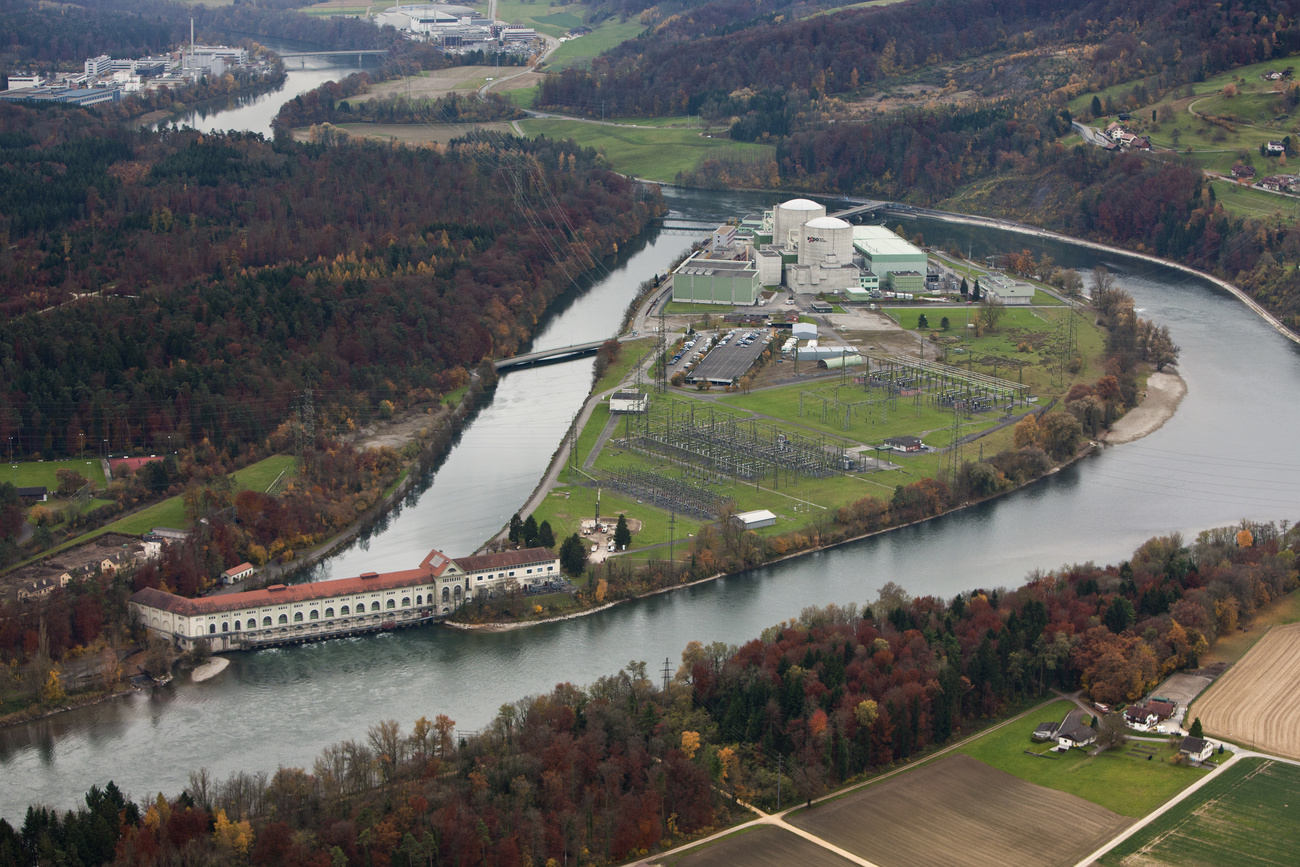
Swiss nuclear power plant reduces output to protect fish during heatwave

One of Switzerland’s nuclear power stations has temporarily scaled back operations to avoid raising the temperature of its feeder river to levels that are dangerous for fish.
Beznau is Switzerland’s oldest nuclear plant and comprises two stations built on a small artificial island in the river Aare in the north of the country. Unlike two newer stations, Beznau was not built with a cooling tower but relies on water from the Aare to control temperatures.
Producing some 6,000 gigawatt hours of electricity per year typically raises the temperature of downstream water by between 0.7 and one degree Celsius.
Switzerland is experiencing a prolonged summer heatwave that has already raised the temperature of rivers, including the Aare. Freshwater fish species living in the river cannot tolerate water temperatures much above 25 degrees Celsius.
As a result, Beznau operator Axpo has been forced to reduce output to meet its legal environmental commitments.
The plant would be forced to shut down completely if water temperatures rise above 25 degrees for three consecutive days, reports Swiss public broadcaster SRFExternal link.
Switzerland is already facing up to the impact of rising energy costs and potential shortages in the coming months, driven in part by meteorological conditions but also disruptions caused by the Ukraine war.
But this danger is expected to strike in the winter months when Switzerland’s hydro-power dams are less productive. At this time of year, the river temperature issue will be less of a problem.
Switzerland produces around 30% of its electricity from its three nuclear power plants. The government decided in 2011 to phase out nuclear power following the Fukushima disaster in Japan.
The initial idea was to stop nuclear power production by 2034. The Mühleberg plant is currently being dismantled.
Uncertainties about securing long-term power supplies led to the fixed deadline of 2034 being scrapped and replaced with a more vague commitment to only keeping the remaining power stations running as long as it is safe.

In compliance with the JTI standards
More: SWI swissinfo.ch certified by the Journalism Trust Initiative





























You can find an overview of ongoing debates with our journalists here . Please join us!
If you want to start a conversation about a topic raised in this article or want to report factual errors, email us at english@swissinfo.ch.